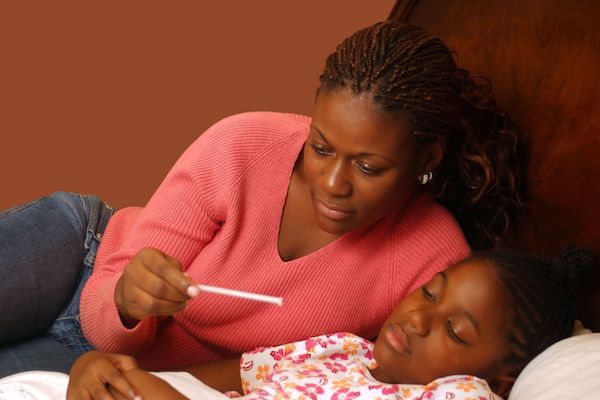A fever occurs when the body temperature exceeds the normal range, usually due to illness.

The normal range for body temperature is considered between 36 and 37 degrees Celsius. A fever, also called a high temperature or pyrexia, is a temporary elevation of the body’s temperature, usually occurring as a symptom of an underlying illness.
Fever causes could be any one of a variety of medical conditions, which range all the way from infections – like the common cold or, more seriously, malaria – through to cancer.
It is believed that fever may occur as a way for the body to attempt to battle off infection. However, high fever in children can cause convulsions.
What are its symptoms?
Along with the increased body temperature, fever symptoms can include:
- Lethargy
- Shivering
- Sweating
- Inability to concentrate
- Muscle aches
- Dehydration
- In children, fussiness and sick behaviour
A fever that exceeds 39.4°C, may also be accompanied by:
- Confusion
- Hallucinations
- Convulsions
How is it diagnosed?
A fever can be easily diagnosed using a simple thermometer. However, in order to determine the cause of a fever, a healthcare provider will use a medical history, a physical examination and, if necessary, will carry out further diagnostic tests, such as blood tests.
Fever in babies and toddlers can signal a serious problem, so always call your doctor if their fever lasts longer than 24 to 48 hours, if it’s higher than 38°C in newborns or higher than 39°C in babies under 12 months, or if it’s accompanied by other symptoms of illness that might warrant medical attention.
What are your treatment options?
In most cases, people recover from fever without any specific treatment or medical attention. What’s more important is treating whatever may be causing the fever – for example, taking antibiotics if a bacterial infection is implicated. Some over the-counter medicines can be effective antipyretics (the term for drugs used for fever treatment) – these include aspirin (suitable for adults only) and ibuprofen.
Sponging or bathing a child with a high temperature in tepid water or the use of cooling fans can increase comfort levels.
Can it be prevented?
Avoiding falling ill is the only way to really avoid fevers. Otherwise, fever should be seen as part of the body’s natural process for eliminating illness.
IMAGE CREDIT: 123rf.com
